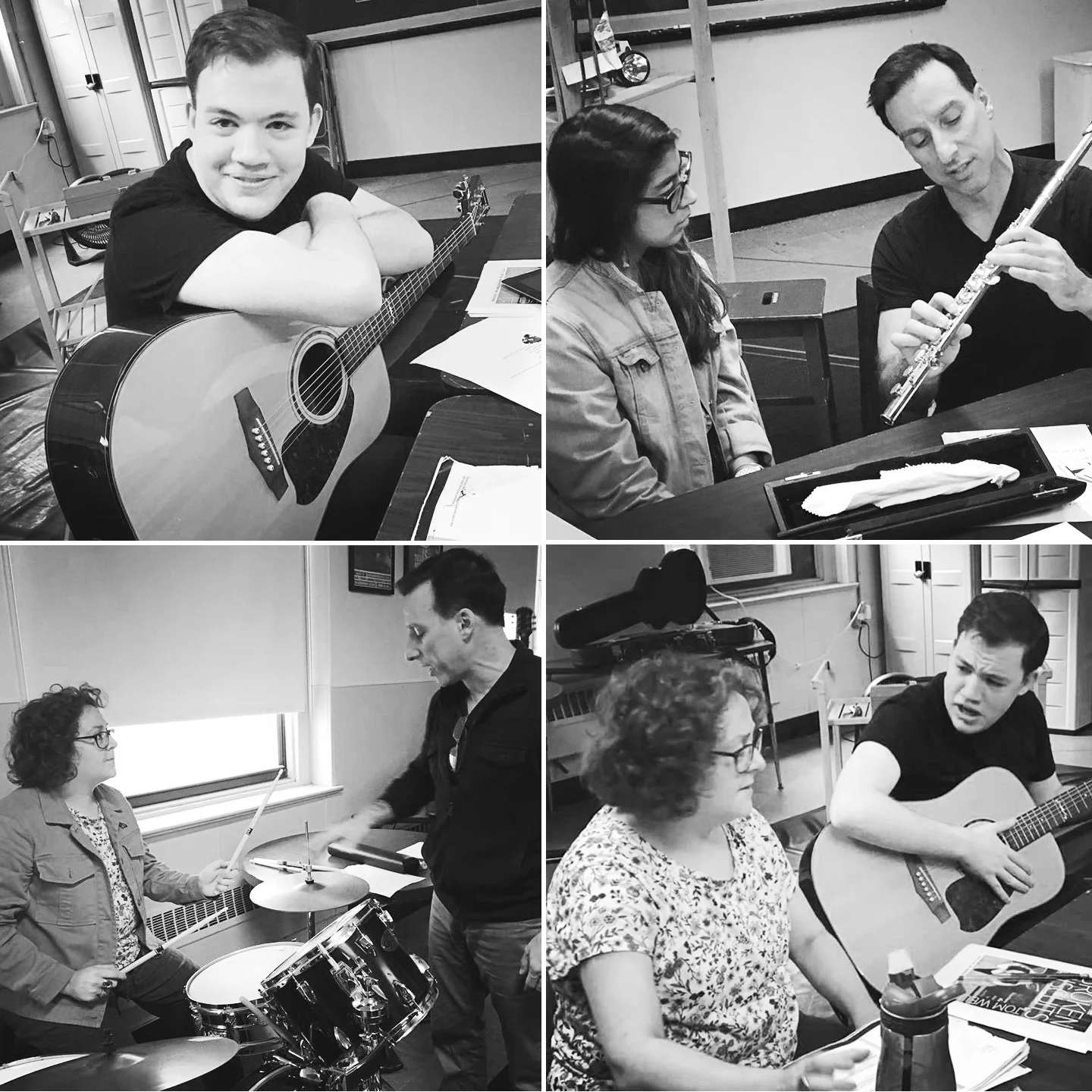If you’ve never see an actor’s resume, they usually follow a pretty standard design. They are typically kept to one page (to fit on the back of the actor’s headshot) with the name at the top, then any union affiliation (Actors’ Equity Association or Screen Actors Guild-AFTRA) then one’s height, weight, hair color, and eye color. Of course, there is a list of shows including the role played, theatre where it was produced, and the director one worked with is often identified. Under this list is commonly the actor’s education and specific teachers with whom they studied. And then, at the bottom, there are the “Special Skills.”
The “Special Skills” is where an actor lists functional skills that may be assets to a performance. The accents in which they are proficient, the styles of dance they can perform, musical instruments they can play, languages they can speak, whether they are proficient in puppetry or yodeling or even if they can drive a manual transmission (you never know when an Indy film needs to capture your character’s life altering, cross-country drive flashback in your 1989 Honda Accord). This is also where a “Stupid” human trick might be listed (can fit my entire fist in my mouth, can recite the pledge of allegiance backwards, can make dolphin sounds…) It is the Special Skills that sometimes can get an actor called into a specific audition, or considered for a role. Take the 2006 Broadway revival of Sondheim’s Company, where the entire cast replaced the orchestra and accompanied themselves. I’m sure several of those cast members were thankful they had stuck to their violin lessons as a kid.
Sometimes, an actor is cast and then has to learn a special skill specifically for a role. Think of the 2014 Broadway production of The River where Hugh Jackman had to clean, gut and cook a fish on stage, or Philly favorite Rob McClure’s Tony-nominated hat tricks and tight wire act in Chaplin. I’ve often been tasked with acquiring a skill in a narrow window of time for a show. One instance that comes to mind was for 1812’s original This Is The Week That Is in 2006. Jen Childs asked me to perform a recreation of a Will Rogers act, complete with lasso and rope tricks, while I waxed philosophical about the differences between Democrats and Republicans. The act culminated with my simultaneous lassoing of Scott Greer and Tony Braithwaite on a final punchline. Not the easiest thing I’ve ever done on stage, the stunt was successful only about 75% of the time, but fortunately for me, the impromptu commentary by Braithwaite and Greer on my “proficiency” guaranteed a laugh every night!
For the 2013 production of 1812’s The Big Time, Scott, Jen and I took two months of dance lessons to learn the opening act of the show, a cross-dressed, three-person tango. I’ve had to learn how to play klezmer clarinet for a production with EgoPo, upright bass for a show at the Walnut, do a Pakistani accent for a show at InterAct, to sing in Russian for a show at the Lantern, and to play the duduk, an ancient, Armenian double-reed wind instrument at the Arden. All, for the most part, are now listed in my Special Skills.
Which brings me to 1812’s first show of the season, Broken Biscuits. The show calls for the cast of Amanda Jill Robinson, Leigha Kato, and Michael Macri to portray high school students who are putting together a garage band for the first time. I was hired to be the band and instrument coach, giving guidance on playing the flute, drums, and guitar parts in the production. And the cast has hit the ground running. Amanda sat behind the drums for the very first time on the first day of rehearsal. The same for Leigha and her flute. And while Michael has a head start on playing acoustic guitar, for the show he is needed to perform a number of songs on electric guitar, which is a different animal all together. After one week of rehearsals, I can say the cast is doing fantastic on their new pursuits. And, to quote Leigha during one of our flute lessons, “I want to learn it well enough to put it on my Special Skills.”
Dave Jadico and the cast of Broken Biscuits (Clockwise from top left: Michael Macri, Leigha Kato, Amanda Jill Robinson). Photos by Christopher Colucci.


